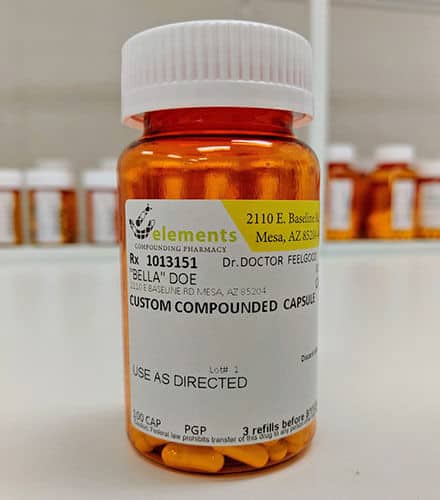222 mg fenbendazole: FAQs
Wiki Article
Understanding the Perks and Uses of Fenbendazole in Veterinary Medication
Fenbendazole has established itself as a vital anthelmintic in vet medication. Its ability to target numerous parasitic infections makes it a valuable device for veterinarians. The medication's device disrupts essential cellular processes in bloodsuckers, resulting in reliable treatment end results. Nevertheless, its safety and security account varies in between species, requiring cautious consideration in its usage. Understanding these dynamics can clarify fenbendazole's broader ramifications in vet care and recurring study into its potential beyond traditional applicationsSystem of Activity of Fenbendazole

Typical Parasitic Infections Treated With Fenbendazole
A selection of parasitical infections are properly treated with fenbendazole, making it a versatile choice in veterinary medicine. This anthelmintic representative is specifically reliable versus nematodes, including roundworms and hookworms, which frequently affect pets and pet cats. It is also used for the therapy of cestodes, such as tapeworms, offering a wide spectrum of activity against both sorts of digestive bloodsuckers. In addition, fenbendazole is valuable in handling infections brought on by protozoa, specifically Giardia, which can lead to stomach distress in animals. Its efficiency includes treating particular lungworms in pooches and felines, addressing breathing health and wellness problems connected to these parasites. Overall, fenbendazole's capability to target numerous parasitic types makes it a beneficial tool in vet method, making sure the wellness and health of pet dogs impacted by these usual infections.Safety and Efficacy in Various Pet Species
The safety and security and efficiency of fenbendazole differ amongst various pet species, emphasizing the importance of species-specific considerations in vet medication. In canines, fenbendazole is usually well-tolerated and effective against a variety of stomach parasites, consisting of roundworms and hookworms. For felines, nonetheless, its usage is less common and may call for cautious application due to potential damaging responses.In find this livestock, such as cattle and lamb, fenbendazole demonstrates performance versus different endoparasites, contributing to boosted health and wellness and performance. The pharmacokinetics and potential side impacts can differ noticeably in between species, necessitating careful examination by veterinarians.
Horses likewise react positively to fenbendazole, particularly for dealing with strongyles and ascarids, though dosage and administration courses have to be customized to their special physiology. Understanding these differences is essential for enhancing treatment outcomes and ensuring pet welfare throughout varied types.
Administration and Dosage Standards
Appropriate management and dose standards are important for taking full advantage of the restorative effects of fenbendazole while decreasing potential negative effects. The dosage typically differs depending upon the varieties being dealt with, the particular problem, and the formula of fenbendazole made use of. 222 mg. For dogs and cats, a typical dosage is 50 mg/kg body weight, administered daily for 3 successive days, but veterinarians may change this based on private health and wellness analysesIt is necessary to carry out fenbendazole with food to improve absorption and lessen stomach trouble. The drug is offered in numerous kinds, consisting of granules and paste, permitting adaptable management options. Keeping an eye on the pet's action throughout and after treatment is advisable to verify efficiency and safety. Furthermore, vet support is essential to establish the ideal period of treatment based on the sort of parasitic infection being addressed, assuring perfect outcomes for the animal's health.
Future Perspectives and Study on Fenbendazole
Research this hyperlink study on fenbendazole remains to evolve, concentrating on its possible applications beyond standard antiparasitic usages. Recent researches have discovered its performance in dealing with various forms of cancer cells, particularly in veterinary oncology. Preliminary data suggest that fenbendazole may hinder the development of lump cells and boost the results of other chemotherapeutic agents.Researchers are exploring its function in managing intestinal disorders in animals, highlighting its anti-inflammatory buildings. The flexibility of fenbendazole for different varieties increases inquiries about its safety accounts and suitable application programs in diverse populaces.
As rate of interest expands, there is a need for complete clinical trials to develop evidence-based guidelines for these novel applications. Future study may likewise investigate the systems behind fenbendazole's results, potentially paving the means for ingenious therapeutic methods in veterinary medication. The continuous expedition of fenbendazole can greatly boost therapy alternatives for various vet conditions.

Frequently Asked Inquiries
Is Fenbendazole Safe for Pregnant Animals?
The safety and security of fenbendazole for pregnant pets remains unclear. While some studies suggest minimal danger, veterinarians normally recommend care and often encourage versus its use throughout maternity unless the benefits clearly surpass potential dangers.Can Fenbendazole Be Used in Livestock?
Fenbendazole is generally utilized in livestock to deal with various parasitical infections. fenbendazole 444. Its efficiency versus intestinal worms makes it a beneficial anthelmintic, adding to improved health and performance in pets raised for food and fiberWhat Are the Adverse Effects of Fenbendazole?

The side impacts of fenbendazole may include stomach disturbances, lethargy, and allergies. In rare instances, a lot more extreme responses could happen, necessitating mindful surveillance and appointment with a vet during therapy.
Exactly How Does Fenbendazole Contrast to Various Other Dewormers?
Fenbendazole provides broad-spectrum efficacy versus check my blog various bloodsuckers, often contrasting favorably to other dewormers. Its distinct mechanism targets various life phases, making it effective, while usually providing a favorable safety and security profile contrasted to options available on the market.Can Fenbendazole Be Used for Dealing With Cancer in Pets?
The capacity of fenbendazole in dealing with cancer in pet dogs has amassed passion. Preliminary research studies recommend it may hinder cancer cell development, but additionally research is required to confirm its efficiency and security in veterinary oncology.Report this wiki page